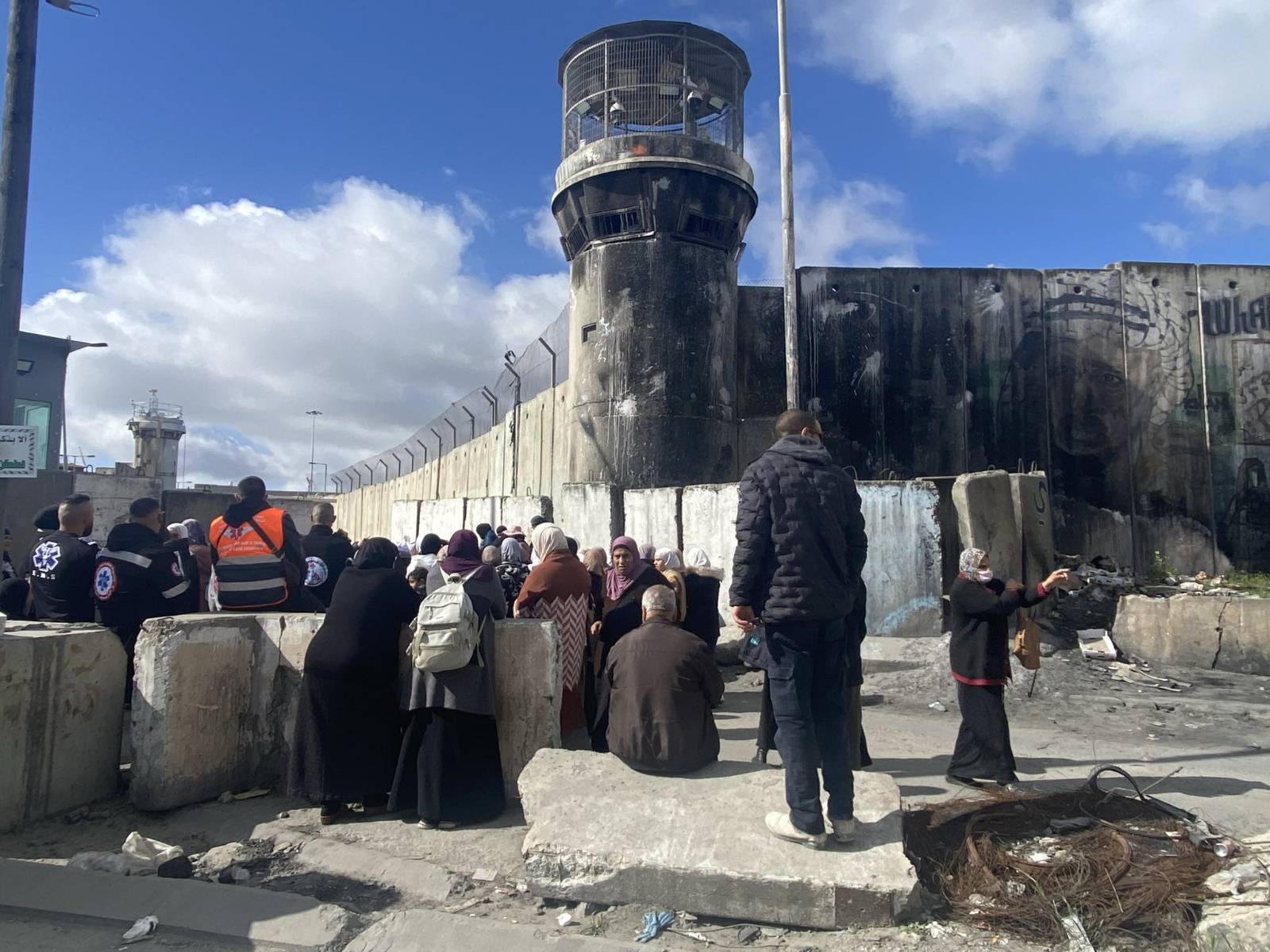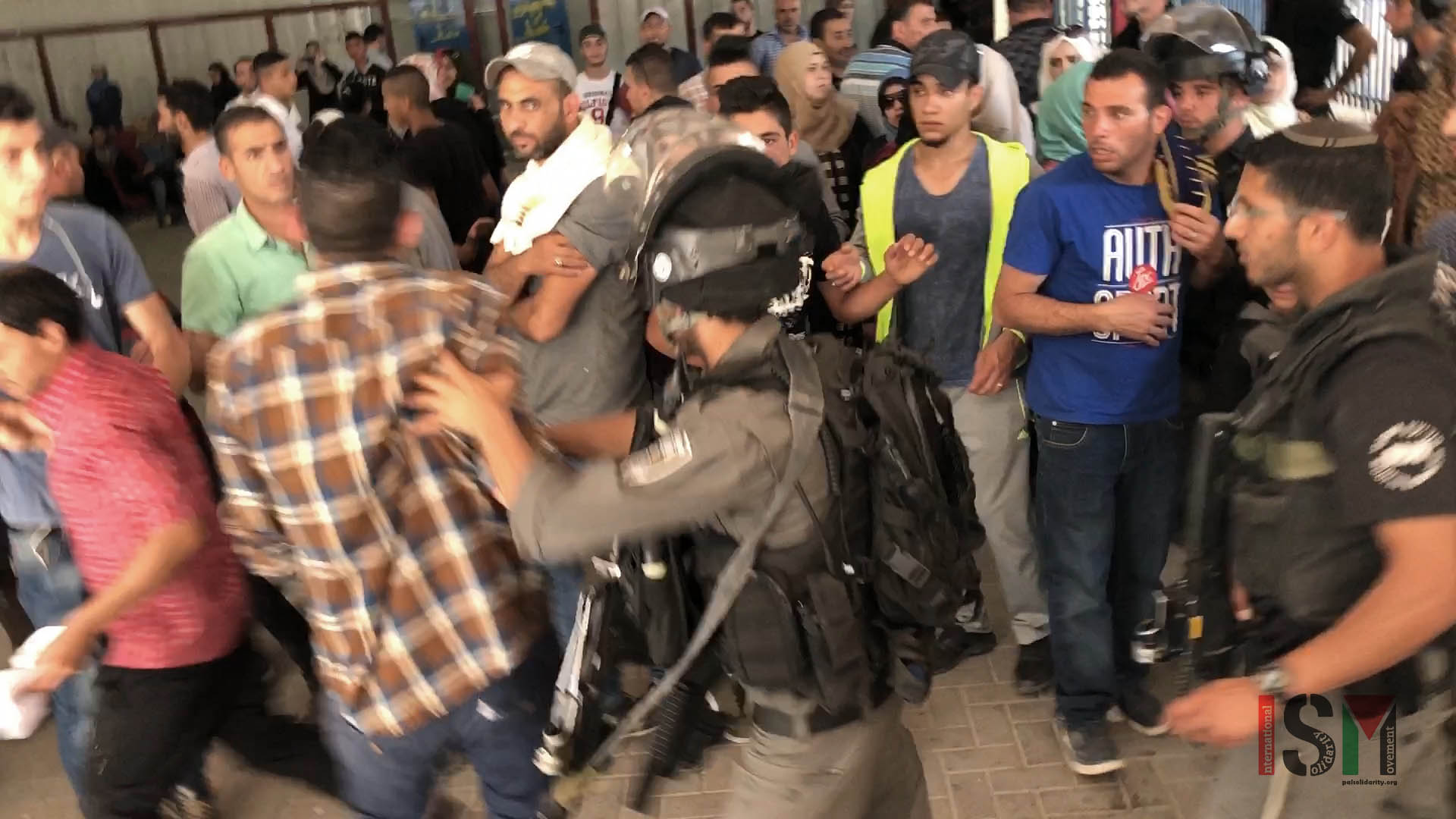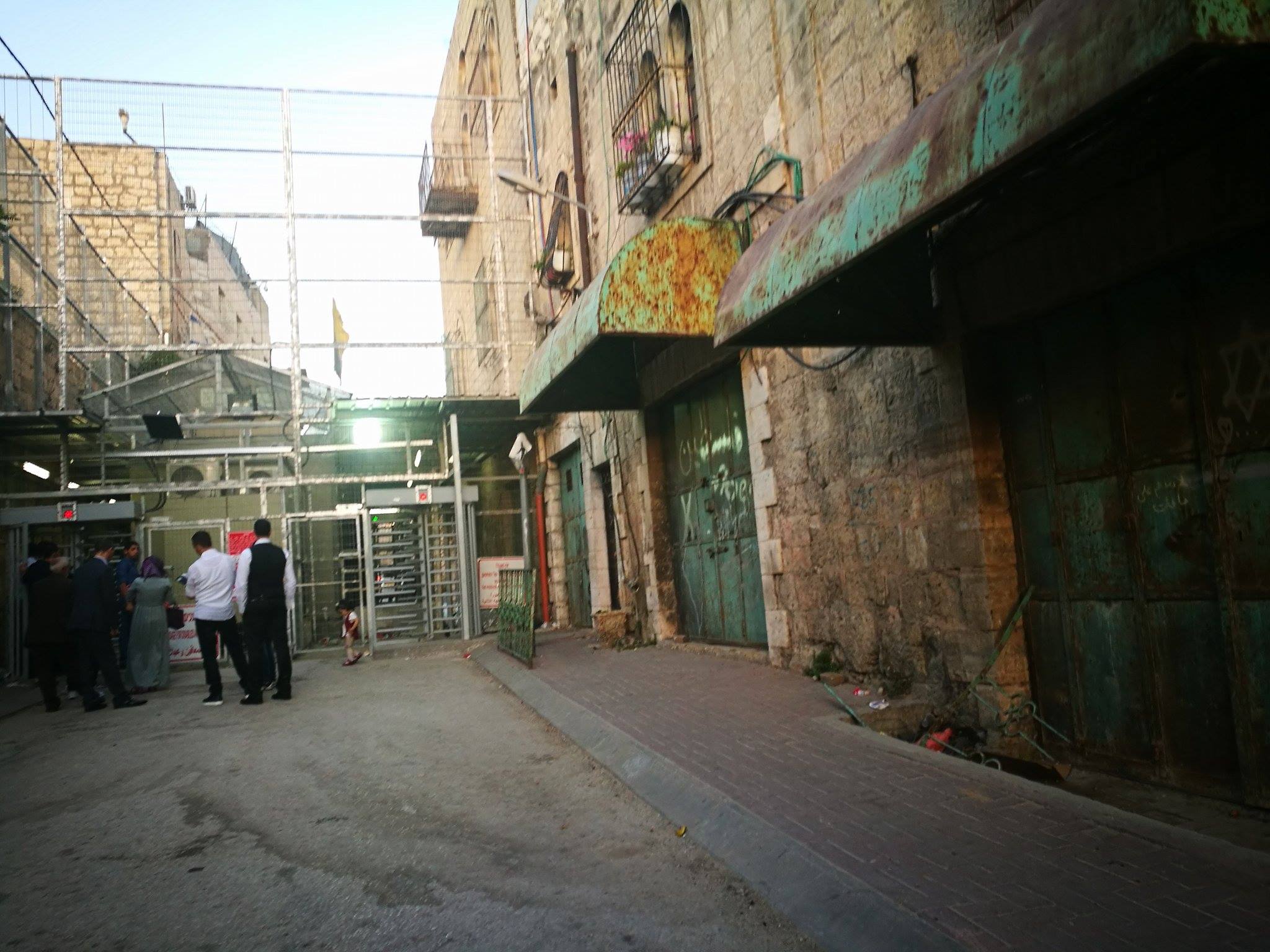Tag: Ramadan
-
Deceptively “quiet” first week of Ramadan in Jerusalem: a result of restrictions at Qalandia checkpoint
19 March 2024 | International Solidarity Movement | West Bank/East Jerusalem Stories from Israeli and international press extoll a safe and unencumbered celebration of the first week of Ramadan for the thousands of Palestinians with Israeli or Jerusalem ID cards, who were allowed entry to Al-Aqsa in most cases with minimal delay. Unfortunately, Palestinian Muslim…
-
Israeli forces harass and assault Palestinians at Qalandiya checkpoint
Throughout the morning of Friday 8th June, many Palestinians passed through Qalandiya checkpoint into Israeli-occupied East Jerusalem, in order to pray at the Al-Aqsa mosque. The Israeli government allows a slight easing of the travel restrictions that ban most Palestinians in the West Bank from entering Jerusalem, only for Friday prayers during the month of…
-
Palestinians celebrating Eid in a ‘closed military zone’
26th June 2017 | International Solidarity Movement, al-Khalil team | Hebron, occupied Palestine As anywhere all over the world, Palestinian Muslims are celebrating the end of the fasting-month Ramadan with the 3-day feast of Eid. Eid usually is a joyous occasion, everyone dresses up nicely and the most important activity is visiting family. For Palestinians…



